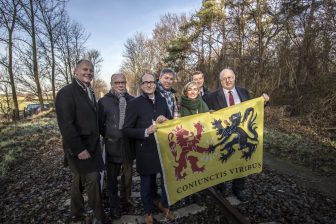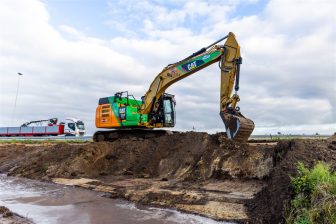ADB funds water quality study West Tarum Canal
Manila, Philippines – In response to Jakarta’s serious water problems, ADB is funding a study on water quality in the West Tarum canal, which provides 80% of the capital city’s freshwater supply.
The canal is in poor condition, which has triggered regular interruptions to Jakarta’s water supply in recent years. Pollution enters the water from communities living alongside the canal, and from rivers that cross it on their way to the Java Sea. The pollution also increases the cost of treating the water before it is piped to Jakarta’s consumers.
The 12-month study will be carried out jointly by Perum Jasa Tirta 2, the government’s bulk water service provider of the Citarum river basin, and the Korean water resources corporation K-Water, which will cosponsor the study.
“Water pollution is a critical problem in the Citarum river basin, with much of the pollution coming from industrial and urban uses in Bandung, from where it moves down the river,” says Djendam Gurusinga, President Director of PJT 2. “The results from the study will help to improve water quality in the West Tarum Canal, and later in the whole river basin.”
The study will monitor water pollution in 20 or more locations, and recommend measures to improve water quality. The work forms part of ADB’s assistance to the government for the preparation of a 15-year investment program to introduce integrated water resources management in the Citarum river basin. The Integrated Citarum Water Resources Management Program is expected to start in late 2007 and will involve collaboration among central, provincial, and local governments, communities, industry, and civil society organizations.
A series of stakeholder workshops organized in 2006 formulated a vision for the program: “The government and community working together for clean, healthy and productive catchments and rivers, bringing sustainable benefits to all people in the Citarum river basin.” They also endorsed a roadmap for the program that focuses on seven areas of improvement, including institutions and planning for integrated water resources management; water resources development and management; water sharing; environmental protection; disaster management; community empowerment; and data and information management.
“Following the water law of 2004, the government is now taking a basin-wide approach to improving water and natural resources management in the Citarum basin,” says Christopher Morris, senior water resources specialist of the ADB in charge of the investment program and the water quality study. “The partnership with K-Water on water quality can help to reduce water pollution in the basin.”
The preparation of the new water projects in Indonesia comes in response to ADB’s call to increase water investments in the region. ADB announced in 2006 that it seeks to double its own water investments in the region to well over $2 billion annually to help in meeting the region’s huge water needs.
ADB’s Water Financing Program 2006-2010 combines expanded investments in water infrastructure with a strong emphasis on good governance to manage water as a resource and as a service, with people in the center, leadership at the national level, and a focus on better decision-making and implementation. The Water Financing Program focuses on the delivery of substantial investment, reform, and capacity development in three key areas – rural water services, urban water services, and river basin water management.
U las zojuist één van de gratis premium artikelen
Onbeperkt lezen? Profiteer nu van de introductieaanbieding voor € 10,- per maand.
Bent u al abonnee?



